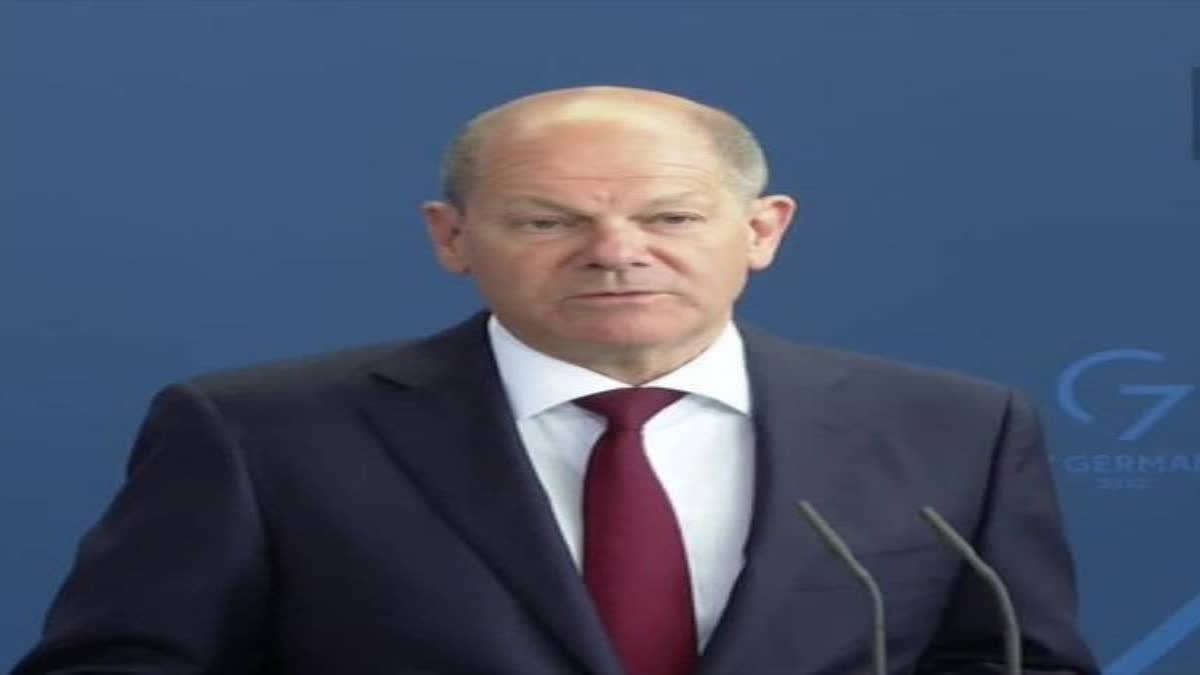New Delhi: In a strong message to China, from India, German Chancellor Olaf Scholz on Friday said that there is a need to avoid one-sided dependencies, especially in areas of strategic importance. Olaf is visiting New Delhi at a crucial time when he is trying to revive Germany's economy, which has been pounded by the Ukraine war and the growing Chinese influence in the global economy.
Olaf is on a three-day visit to New Delhi as he seeks to forge a strategic partnership with India to reduce its reliance on Beijing given the sour relationship. Addressing the 16th Asia Pacific conference of German business, Olaf Scholz said, "We must avoid one-sided dependencies, especially in areas of strategic importance, critical raw material, technologies. China now, an industrial giant, should give up the special treatment it received as a developing country."
He said, "The Korean Peninsula, the South and East China Sea all remain flash points of potential conflicts, even though we all hope that these conflicts can be contained...let us do whatever we can to bring about political solutions to these conflicts. Solutions that are based on international law and the principles of the UN Charter."
On the Russia-Ukraine conflict, the German Chancellor said, "If Russia is to succeed in its illegal brutal war against Ukraine, there would be repercussions far beyond Europe's borders. Such an outcome would endanger global security and prosperity as a whole. The Middle East remains another constant source of tension and a stark reminder of the human cost of division and the world's inability to reach political solutions."
The world of the 21st century is something where progress is a question we have to work for. But in a multipolar world, there is no global policemen, no single watchdog monitoring or common rules and institutions, every one of us is called upon to defend and uphold them," he added.
He said, "Overall message is clear--we need more cooperation, not less--globalisation has been and remains a tremendous success story for all of our nations. Around one billion people in developing and middle-income countries alone have joined the middle class, thanks to global value chains, cross-border investments and economic cooperation".
The German Chancellor noted that many countries in the Asia Pacific Region are perfect examples here. "That is why I keep telling the proponents of deglobalisation and decoupling whatever the protectionist policies are being called these days, let's be careful. In the short term, those concepts may sound tempting, but ultimately they lead to weaker growth, higher prices, lower global prosperity and less competition, which means less innovation. We need to take a different approach, one that I would like to call 'being open without being naive," he added.
He pointed out Simon Johnson's (economist) recent interview where he emphasised that true, genuine, inclusive democracy matters very clearly when it comes to economic success.
"The organisers of this year's Asia-Pacific Conference of German Business probably didn't foresee the decisions by the Royal Swedish Academy. But by inviting us to India, you have the right instinct. Today, we are meeting in the world's biggest democracy, the fastest-growing major economy in the world with the most rapidly expanding renewable energy sector of any major economy, a country at the heart of the world's most dynamic region - the Asia Pacific. In a nutshell, the Asia-Pacific Conference has come to the right place at the right time," said the German Chancellor.
Meanwhile, Prime Minister Modi said, "This is the time and correct time to get involved in India's growth story. When India's dynamism and Germany's precision meet, when Germany's engineering and India's innovation meet and when Germany's technology and India's talent meet - it ensures a better future for the world, including the Indo-Pacific".
"You all are in the business world and you have the mantra of 'when we meet, we mean business'. But, coming to India isn't about business only. If you don't give time to India's culture, cuisine and shopping, you'll miss many things. I assure you, you'll be happy and back home, your family will be happier," added PM Modi.
Read more: Explained | German Chancellor’s Visit: The Economic Significance For India



